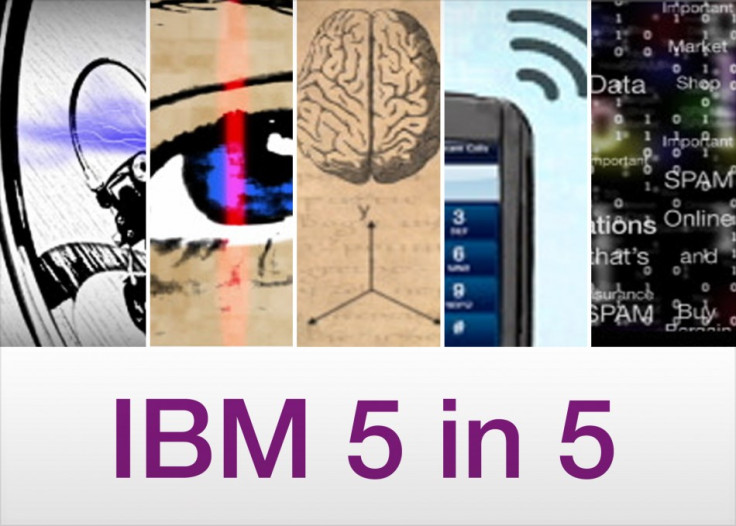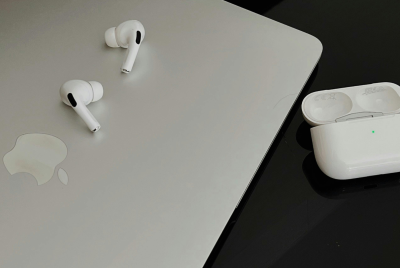IBM Forecasts Five Innovations to Change the World [VIDEO]

IBM's sixth annual Five in Five report outlines what the multinational believes will be the five biggest technological innovations over the next five years.
People Power will Come to Life
Referring to a scientific rather than political innovation, the first of IBM's predictions, neatly titled "People Power will Come to Life", suggests that within five years people will literally make their own energy.
Prophesying a huge leap in renewable energy technologies - as opposed to a Matrix-esque human energy farm - the IBM 2011 Five in Five analysts predict a future where small portable devices capture and re-use energy generated from our movements and body heat.
As well as being used on ourselves the new tech will become a common component of most electronic devices, recycling excess heat and Kinect motion, says the company.
"Anything that moves or produces heat has the potential to create energy that can be captured - walking, jogging, bicycling, the heat from your computer, even the water flowing through your pipes," says IBM. "Advances in renewable energy technology will allow individuals to collect this kinetic energy, which now goes to waste, and use it to help power our homes, offices and cities."
You Will Never Need a Password Again
Bordering on the Orwellian, IBM's second prediction suggests that all identification protocols will be done reading the individual's biological makeup.
The tech will reportedly make an index of each person's "unique biological identity" - facial expressions, eye movements and voice - using the databank to confirm the user's identity without the need for a written password.
"You will no longer need to create, track or remember multiple passwords for various log-ins. Imagine, you will be able to walk up to an ATM machine to securely withdraw money by simply speaking your name or looking into a tiny sensor that can recognise the unique patterns in the retina of your eye. Or by doing the same, you can check your account balance on your mobile phone or tablet," says IBM.
Mind-reading no Longer the Stuff of Dreams
Making every science-fiction fan's dream a reality, IBM's third prediction suggests that mind-reading may soon be a reality.
The claim comes after IBM research reportedly made strides exploring possible ways to link devices to the user's brain. Rather than a surgical implant, the research has reportedly focused on developing headsets capable of reading electrical brain activity and converting the data into commands and instructions for the device.
"Scientists in the field of bioinformatics have designed headsets with advanced sensors to read electrical brain activity that can recognise facial expressions, excitement and concentration levels, and [the] thoughts of a person without them physically taking any actions," says IBM.
While the headset already exists, the company claims that as the technology improves and the cost goes down, devices will become increasingly common. The entertainment and gaming industry was quoted as a particular area where the new headset's capabilities would be exploited.
"Within five years, we will begin to see early applications of this technology in the gaming and entertainment industry. Furthermore, doctors could use the technology to test brain patterns, possibly even assist in rehabilitation from strokes and to help in understanding brain disorders, such as autism," IBM says.
Digital Divide will Cease to Exist
Mirroring the hopes of numerous tech blogs, IBM's fourth prediction says that within five years 80 percent of the world's population will own a mobile device.
"In our global society, growth and wealth of economies are increasingly decided by the level of access to information. And in five years, the gap between information haves and have-nots will narrow considerably due to advances in mobile technology," reads the report.
The company forecasts that the development will change the way developing countries interact and allow people to communicate freely across the globe.
"With access to information that was not there before, villagers could check weather reports to help them decide when to fertilise crops, know when doctors were coming into town, and find the best prices for their crops or merchandise.
"Growing communities will be able to use mobile technology to provide access to essential information and better serve people with new solutions and business models such as mobile commerce and remote healthcare."
Junk Mail will Become Priority Mail
The final and perhaps least glamorous of IBM's yearly predictions suggests that improvements in companies' market research techniques will end spam, with advertisement emails being so tailored that recipients will definitely be interested in the message.
"In five years, unsolicited advertisements may feel so personalised and relevant it may seem spam is dead. At the same time, spam filters will be so precise you'll never be bothered by unwanted sales pitches again," reads IBM's prediction, rather ominously.
The new tech will - as you would guess - be based on research enacted by IBM. Based on real-time analytics using data taken from numerous outlets, including social networks and online habits, the new "spam" will intelligently track the user's "digital shadow" picking which messages are right for them and bringing about the death of unwanted spam.
Apple Stock Plummets 50 Percent !!!: Outrageous Predictions for 2012
© Copyright IBTimes 2025. All rights reserved.





















